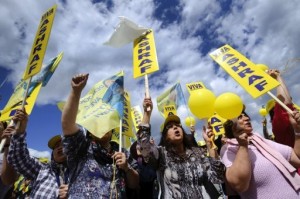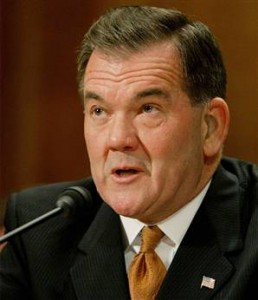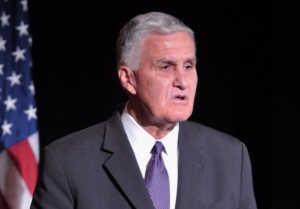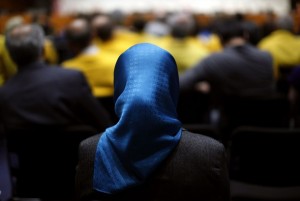AGENCE FRANCE PRESSE
BAGHDAD — Negotiations are underway on relocating several thousand exiled Iranian opposition members from a camp north of Baghdad to another location in Iraq, officials said on Friday.
The European Union, meanwhile, urged further cooperation between UN negotiators and Iraqi officials in “difficult” efforts to close Camp Ashraf, which has hosted members of the People’s Mujahedeen Organisation of Iran (PMOI) since the 1980s.
Iraqi authorities have decided to close the camp by the end of 2011.
“The primary and overall responsibility to deal with the situation in Camp Ashraf lies with the government of Iraq within its sovereignty,” Martin Kobler, the UN secretary general’s special representative for Iraq, told AFP on Friday.
“In agreement with the government, we are in continuous contact with all parties, including the residents of the camp and the members of the international community to facilitate a peaceful and durable solution,” Kobler said.
“In this, I count on the full cooperation of the government of Iraq, the Camp Ashraf residents and the international community. International humanitarian standards and human rights have to be respected.”
“We are ready to assist,” Kobler said. “It is in everyone?s interest to find a peaceful solution.”
According to an Iraqi official, the object is to move the PMOI to another location, then for the United Nations to help repatriate those with dual citizenship to their second countries and the rest to Iran or another state.
The UN insists that repatriation to Iran will be on a voluntary basis.
“The EU is following very closely the current negotiations between the UN, UNHCR (UN Refugee Agency) and the government of Iraq about Camp Ashraf,” said a statement issued by the office of EU foreign policy chief Catherine Ashton.
“These negotiations are very difficult but we trust the UN negotiators to conduct them with the safety of the residents as their main preoccupation,” it added.
“The EU is also in regular contact with the Iraqi authorities and encourages them to be as flexible as possible with the modalities of the evacuation and to cooperate with UNHCR in order to facilitate the relocation of the residents,” the EU statement said.
Earlier in Brussels, the head of the European parliament’s delegation for relations with Iraq challenged the country’s determination to close the camp as “a virtual declaration of war on the UN and international community and a death warrant” for Ashraf residents.
“Ashraf residents … have accepted the European Parliament plan to be transferred to third countries. And we are working full power in this direction,” PMOI spokesman Shahriar Kia said by email.
“The problem is that the precondition for transfer to third countries is confirmation of the refugee status of residents by the UNHCR,” he said.
The UNHCR has said it is ready to “initiate its work by verifying the identity of Ashraf residents,” Kia said, but for “over two months now … we are waiting and the Iraqi government (has been) stonewalling the UNHCR work from the beginning.”
Camp Ashraf, which has become a mounting international problem, has been in the spotlight since a deadly April raid on the camp by Iraqi security forces.
The camp was set up when Iraq and Iran were at war in the 1980s by the PMOI and later came under US control until January 2009, when US forces transferred security for the camp to Iraq.
The PMOI has been on the US government terrorist list since 1997.



